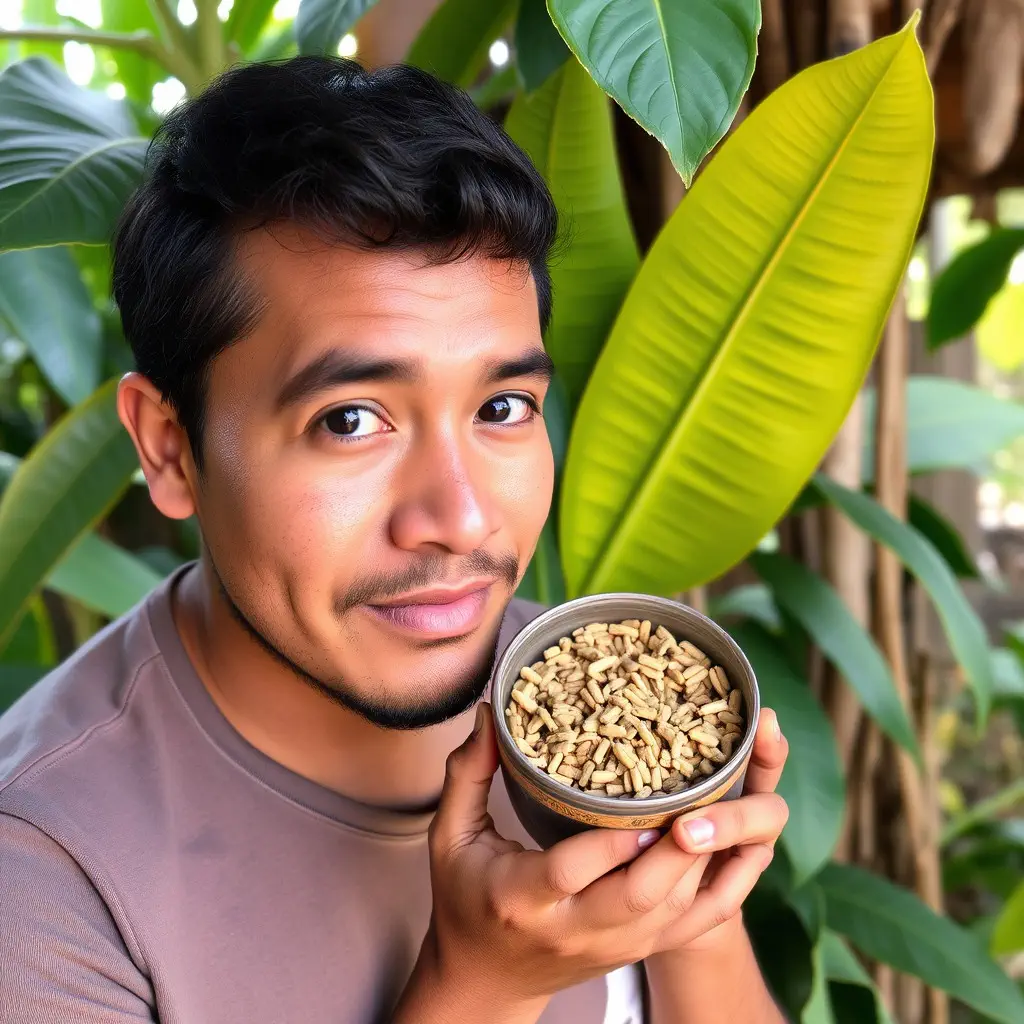The article explores the anti-inflammatory properties of kratom from the Mitragyna speciosa tree and the benefits of barberry root tea, both natural remedies with compounds that can help alleviate inflammation. Kratom's alkaloids, mitragynine and 7-hydroxymitragynine, interact with opioid receptors to manage pain and influence the immune system by modulating pro-inflammatory cytokines. Barberry root tea contains berberine, which also has anti-inflammatory effects, targeting the NF-κB pathway to further reduce inflammation. The combination of these two treatments may offer a dual-action approach for reducing inflammation and aligns with the trend towards plant-based therapies. However, users should proceed with caution due to kratom's varying legal status, potential side effects, and its interaction with other medications. It is crucial to consult healthcare providers before using these supplements, especially for those with chronic inflammatory conditions or on other medications, to ensure safety and appropriate dosing based on individual health conditions. The effectiveness of this combination for inflammation reduction is subject to personal variation, and more research is needed to fully understand its mechanisms and benefits.
Kratom, a botanical supplement derived from the leaves of Mitragyna speciosa, and barberry root tea have garnered attention for their potential anti-inflammatory properties. This article delves into the mechanisms behind kratom’s role in reducing inflammation, alongside the complementary benefits of barberry root tea. By exploring the synergistic effects of these natural remedies, readers will gain insights into safely incorporating them to manage inflammation. Join us as we uncover the holistic approach to inflammation reduction through kratom and barberry root tea.
- Unraveling the Anti-inflammatory Properties of Kratom and Barberry Root Tea: A Holistic Approach to Inflammation Reduction
- Understanding Kratom's Role in Mitigating Inflammation: Effects, Mechanisms, and Safe Usage
- Integrating Barberry Root Tea with Kratom for Enhanced Anti-inflammatory Benefits: A Comprehensive Guide to Combining Natural Supplements
Unraveling the Anti-inflammatory Properties of Kratom and Barberry Root Tea: A Holistic Approach to Inflammation Reduction

Kratom, derived from the Mitragyna speciosa tree, has garnered attention for its potential anti-inflammatory effects, which may offer relief to those experiencing inflammation-related conditions. The alkaloids present in kratom leaves, such as mitragynine and 7-hydroxymitragynine, are believed to play a role in modulating the body’s inflammatory response by influencing various signaling pathways and reducing pro-inflammatory cytokines. This natural compound may serve as a promising alternative or adjunct to conventional anti-inflammatory medications, offering a holistic approach to managing inflammation.
Complementing kratom’s anti-inflammatory properties is barberry root tea, an herbal infusion revered for its medicinal qualities. Berberine, a key active component in barberry root, has been studied for its anti-inflammatory and antioxidant effects, which contribute to its ability to soothe inflamed tissues. The synergistic combination of kratom and barberry root tea may offer a dual-action approach to reducing inflammation, harnessing the natural compounds found in both. This holistic strategy not only targets the underlying mechanisms of inflammation but also aligns with a growing interest in plant-based therapies for health and wellness.
Understanding Kratom's Role in Mitigating Inflammation: Effects, Mechanisms, and Safe Usage

Kratom, a tropical evergreen tree native to Southeast Asia, has garnered attention for its potential anti-inflammatory properties. The leaves of kratom contain alkaloids such as mitragynine and 7-hydroxymitragynine, which are believed to play a role in reducing inflammation. These compounds interact with the body’s opioid receptors, leading to a cascade of effects that can help alleviate pain and inflammation. Studies suggest that kratom may modulate the immune response, inhibiting pro-inflammatory cytokines and enzymes involved in the inflammatory process. This modulation could be particularly beneficial for individuals suffering from chronic inflammatory conditions.
In addition to its direct effects on inflammation, kratom may complement other natural remedies like barberry root tea. Barberry root, a component of this herbal tea, has been traditionally used in medicine due to its anti-inflammatory and antimicrobial properties. Berberine, a notable alkaloid found in barberry root, has shown potential in reducing inflammation by inhibiting the nuclear factor kappa B (NF-κB) pathway, which is a key regulator of inflammatory responses. The synergistic effects of kratom and barberry root tea could offer a more comprehensive approach to managing inflammation, potentially leading to improved outcomes for those seeking natural alternatives to conventional anti-inflammatory drugs.
When considering the use of kratom for inflammation reduction, it is crucial to approach it with caution and understanding of its potential side effects and legal status in different regions. Users should adhere to recommended dosages and consult healthcare professionals before integrating kratom into their health regimen, especially if they are taking other medications or have pre-existing health conditions. The safety and efficacy of kratom can vary based on individual differences, and ongoing research continues to shed light on its mechanisms and optimal uses.
Integrating Barberry Root Tea with Kratom for Enhanced Anti-inflammatory Benefits: A Comprehensive Guide to Combining Natural Supplements

When exploring natural approaches for inflammation reduction, the synergy between kratom supplements and barberry root tea emerges as a topic of interest due to their potential anti-inflammatory properties. Barberry root tea, traditionally used in herbal medicine, is often praised for its anti-inflammatory effects thanks to alkaloids like berberine. This compound has been studied for its role in modulating inflammation by inhibiting certain signaling molecules known as cytokines. By integrating barberry root tea into a regimen with kratom, which is also recognized for its anti-inflammatory and analgesic effects, individuals may amplify the beneficial impact on their inflammation levels. Kratom contains alkaloids such as mitragynine and 7-hydroxymitragynine, which are thought to contribute to its anti-inflammatory properties. The combination of these two natural supplements may provide a more potent anti-inflammatory response compared to using either one alone.
It is crucial to approach the combination of kratom and barberry root tea with caution, as both substances can have significant effects on the body. Users should start with low doses to assess their individual responses, as the optimal ratio may vary depending on a person’s unique physiology and health conditions. Additionally, it is advisable to consult with a healthcare provider before incorporating these supplements into any treatment plan, especially for those managing chronic inflammatory diseases or taking other medications. This guide aims to provide valuable insights into the potential benefits of combining barberry root tea with kratom for enhanced anti-inflammatory effects, emphasizing the importance of careful consideration and professional guidance.
In conclusion, the exploration of kratom’s anti-inflammatory properties, coupled with the integration of barberry root tea, offers a promising holistic approach for those seeking natural ways to manage inflammation. The scientific understanding of how these supplements work provides a solid foundation for their use, emphasizing the importance of safe and responsible consumption. By combining the insights from the study of kratom’s mechanisms with the complementary benefits of barberry root tea, individuals can potentially enhance their body’s natural ability to combat inflammation. This synergistic approach underscores the potential for integrative therapies in healthcare, offering a natural alternative to traditional anti-inflammatory treatments. For those interested in exploring these remedies, it is advisable to consult healthcare professionals to ensure safe and effective use within the context of their overall health regimen.






